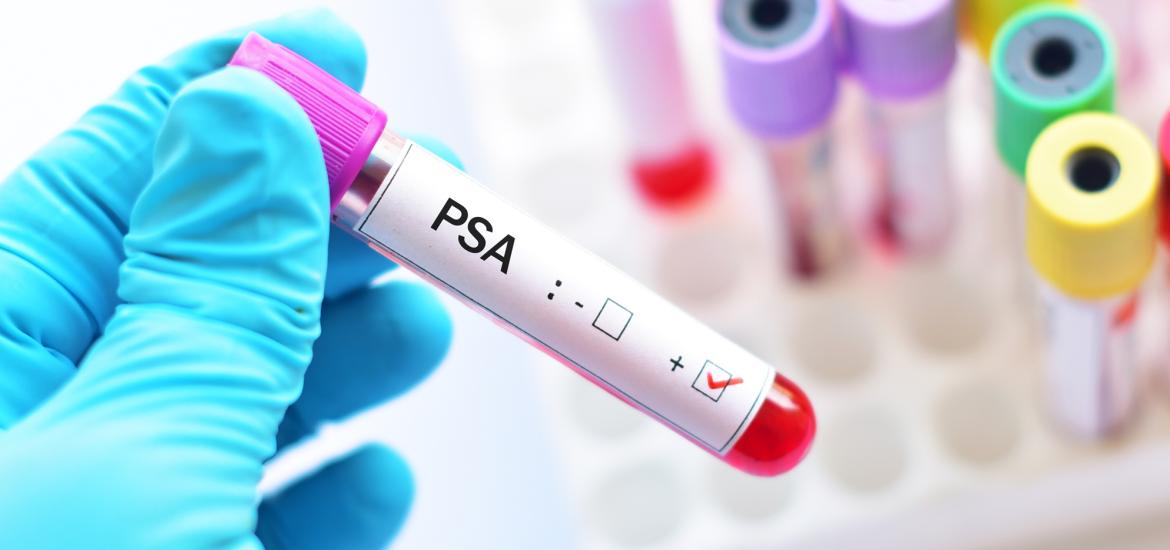
Janux gives conditionally acting therapeutics hope
Early activity of JANX007 in prostate cancer sees Janux stock gain 190%.
Early activity of JANX007 in prostate cancer sees Janux stock gain 190%.

Janux Therapeutics could spur renewed interest in using masking technology to develop conditionally acting therapeutics. This area has seen takeover activity, as has the targeting of PSMA, which happens to be the mechanism of Janux’s lead project, JANX007.
Perhaps helped by a possible takeover thesis, Janux stock surged 190% today, the driver being encouraging but very early data with JANX007, an anti-PSMA T-cell engager that uses technology to mask it until certain peptides are removed by tumour proteases. Though just 23 prostate cancer patients are involved, Evercore ISI called the resulting PSA50 rates “best in class, even in a crowded field”.
The data, released late on Monday, came from JANX007’s first-in-human Engager-PSMA-01 study, in metastatic castration-resistant prostate cancer patients as a median fifth-line therapy. The trial uses stepwise dose escalation, and Janux focused on 18 of the 23 evaluable patients; these subjects had received a first JANX007 dose of at least 0.1mg, and Janux claimed a 56% rate of ≥50% PSA reduction.
Zeroing in on just six patients given a first step dose of at least 0.2mg showed a PSA50 response of 83%. Evercore ISI’s Jonathan Miller called this the best early data he’d seen in metastatic castration-resistant prostate cancer, citing PSA50 rates of 52% for Ambrx’s ARX517 and 49% for Amgen’s AMG 509 in broadly similar populations.
Takeovers
The first might be especially pertinent: Ambrx was taken over by Johnson & Johnson in January for $2bn, largely on the strength of ARX517, an anti-PSMA antibody-drug conjugate. This was despite the fact that Ambrx’s data at ESMO were somewhat confusing, and that the PSA50 rates translated into a confirmed overall response rate of just 22%.
One question for Janux therefore is whether JANX007 is capable of generating response rates according to Recist criteria that look as impressive as the PSA50 scores. Also, durability remains unproven, with many patients given low starting doses of JANX007 seeing rebounds in PSA within 50 days or so of infusion.
Clearly, PSMA is a validated target in prostate cancer – look no further than Novartis’s Pluvicto – with modalities across ADCs, Car-T therapies and radioligands in addition to CD3-based T-cell engagers. What could set JANX007 apart further is its toxicity profile: the phase 1 data detail a 17% rate of severe adverse events (though this included one grade 3 liver enzyme elevation), and no severe cytokine release at all.
The hope is that higher JANX007 dosing might boost efficacy without a toxicity penalty, and so far the signs are promising.
Masking
If JANX007’s safety profile remains more manageable than other T-cell engagers this could be down to the project’s design; masking peptides aim to prevent JANX007 binding PSMA on healthy tissues. It’s only when the molecule enters the tumour that proteases cleave off linkers attaching the masks, releasing an active product that can act where needed before being cleared rapidly.
This type of technology was a hot area of research for some, and it’s possible that Janux’s early data will rekindle enthusiasm. Notably, Sanofi paid $1bn for Amunix in December 2021, shortly after Takeda bought Maverick for up to $525m. Both target companies specialised in T-cell engagers with cleavable masking domains, and the former had done preclinical work with an anti-PSMA project.
Harpoon too had worked on cleavable masking domains, though its takeover by Merck & Co, for $680m in January, was driven by another asset. It must be stressed that this approach has seen failure too, of which Cytomx’s conditionally acting probodies are a good example – notwithstanding the numerous big pharma companies with which Cytomx had partnered.
Bioatla and Xilio are two listed companies that have similar approaches, though both now trade at depressed valuations.
Selected companies that have worked on conditionally acting therapeutics
| Company | Technology approach | Note |
|---|---|---|
| Janux | T-cell engagers with cleavable masking domains | Jun 2021 IPO at $660m valuation; current market cap $1.7bn |
| Amunix | T-cell engagers & cytokines with cleavable masking domains | Raised $190m from venture financiers before being acquired by Sanofi for $1bn in Dec 2021 |
| Harpoon | Trispecific T-cell engagers, including cleavable masking domains | Acquired by Merck & Co for $680m in Jan 2024 |
| Maverick | T-cell engagers with cleavable masking domains | Acquired by Takeda for up to $525m in Mar 2021 |
| Bioatla | T-cell engagers & MAbs with bicarbonate & hydrogen sulfide masking | Dec 2020 IPO at $577m valuation; current market cap $127m |
| Cytomx | MAbs, ADCs & bispecific probodies with cleavable masking domains | Sep 2015 IPO at $330m valuation; current market cap $127m |
| Xilio | MAbs & cytokines with cleavable masking domains | Oct 2021 IPO at $438m valuation; current market cap $17m |
| Revitope | Paired bispecifics with cleavable masking domains | Deal with J&J; $19m raised from venture financiers as of 2021 |
Source: company filings.
3186













